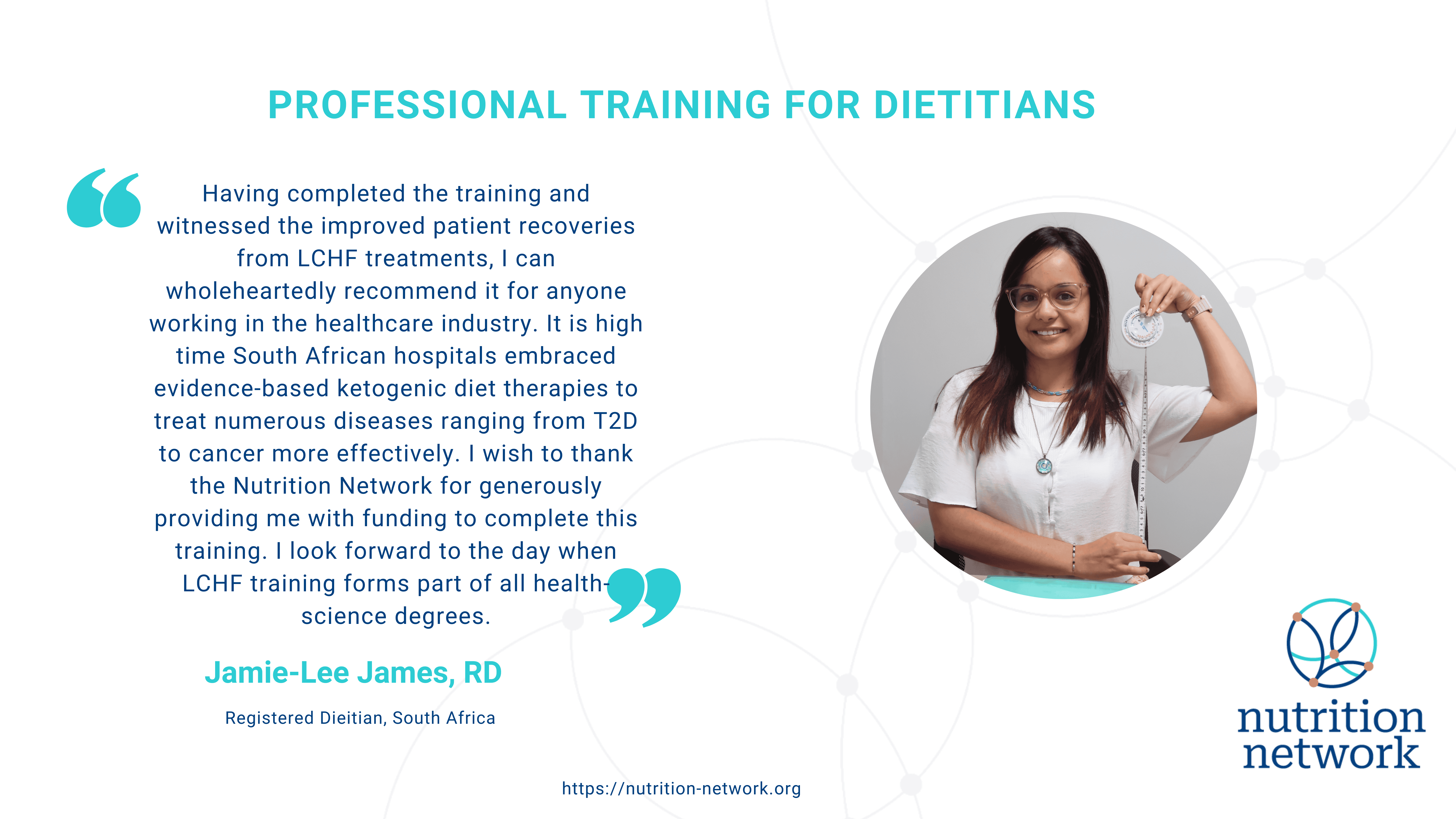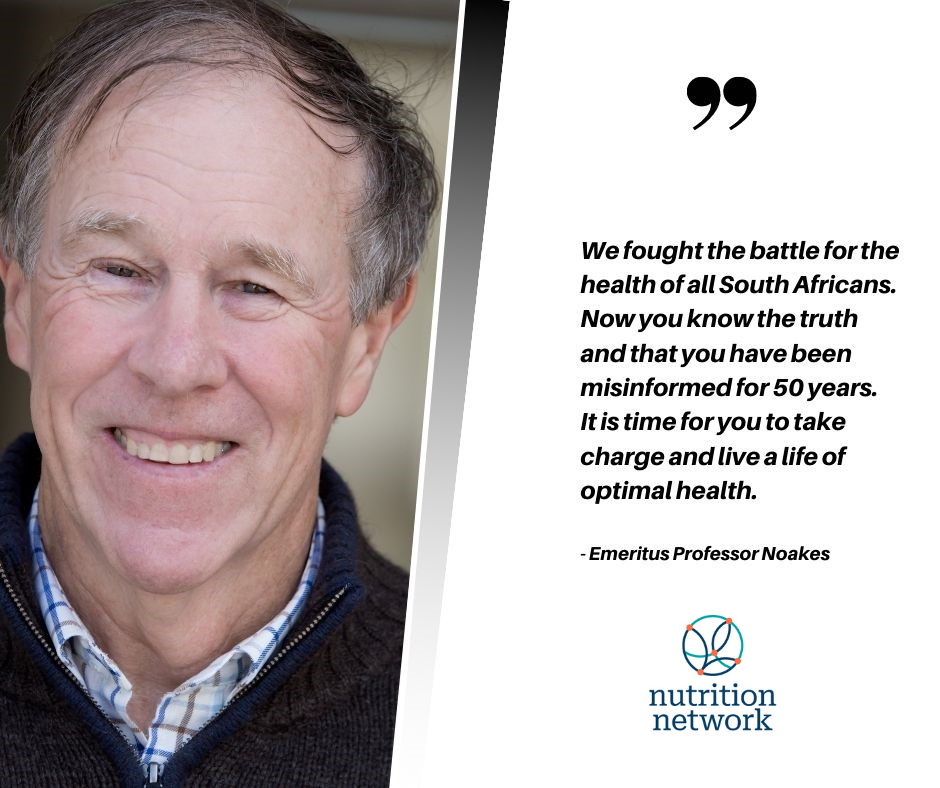Jamie-Lee James, RD (SA)
Introduction
Cancer is this century’s most prevalent worldwide noncommunicable disease. Claiming thousands of lives daily, cancer is predicted to overtake heart disease as the leading cause of death in western societies. Notwithstanding the monumental medical and technological advancements of our era, cancer’s morbidity rates continue to increase. This leads us to a fundamental question: What is cancer and why is it so pervasive today? It is only by understanding the biology of the condition and its evolutionary paradigm that we can begin to develop effective strategies for its treatment and prevention.
This article discusses the underlying root causes of cancer and explains why addressing metabolic dysfunction through ketogenic diet therapy, an overlooked area not embraced within mainstream medicine, is paramount for the prevention and treatment of cancer.
Cancer’s evolutionary paradigm: Cancer-diet connection
It has become a commonly accepted belief that cancer is a predominantly genetic condition or simply a result of bad luck. Over the last decade, however, many cancer researchers have started to question whether we in fact have more control over patient risk than initially thought. Present treatment approaches are being re-evaluated, with the focus shifting towards non-toxic cancer therapy and targeting common underlying metabolic malfunctions.
Cancer has been traditionally understood to be rooted in our genetics; specifically, a genetic predisposition to cancer (carrying the oncogene, for example) determines its course (1). However, this belief doesn’t hold up to scrutiny when we consider the fact that the world has witnessed an exponential increase in cancer prevalence over the past century or so. Regrettably, it is clear from yearly cancer death rates that most modern treatments, which are based on the genetic theory, are unable to manage the disease without toxicity (2).
A more accurate view attributes the rise in cancer prevalence to the increased global rate of sugar consumption and, by extension, rising rates of type-2 diabetes (T2D). To elaborate, cancer rates began to increase in industrialised nations in the late nineteenth century while, simultaneously, T2D rates simultaneously began to rise; both increases were preceded by a rise in global sugar consumption (3).
To argue that cancer is a modern disease, current and past evidence must be analysed comparatively. Humans’ original, ancestral diet consisted of real whole-foods, devoid of refined sugar and ultra processed food (UPF), which are the norm today. For example, when analysing the populations of England and Wales over a hundred-year span, it’s clear that cancer was extremely rare in the early 1800s, accounting for less than 3% of annual deaths (3). By the late 1900s, however, the figure had climbed above 40% (3). Similar exponential increases can be observed in the vast majority of countries influenced by western civilisation (3).
From an evolutionary perspective, it’s evident that a deviation from our natural, species-specific diet occurred over time due to shifts in the availability of the food sources to which modern humans are best adapted. Our original, ancestral diet was predominantly animal-based; high in fat and protein,
1
and low in carbohydrates and sugar (3). Driven by the scarcity of large fat mammals that were hunted into extinction, an alternate food source was needed (3). Enter the late 1800s’ agricultural and industrial revolution, which fundamentally shaped what most people view as today’s ‘conventional western diet’ (3). The revolution provided a solution: the cultivation of grains and cereals, which replaced nutritionally complete, whole-food sources. This new diet consisted of mainly energy-dense but nutrient-poor options, such as largely white-flour products, sugar, polished rice, vegetable fats and preserved goods such as jams and canned food (3). More recently, our modern diet consists of UPF, most of which have been designed to be highly addictive and are thus detrimental to human health, including refined sugar and industrial vegetable seed oils (3).
As most readers will know, excessive sugar consumption can lead to T2D (3). Since persons with T2D are insulin resistant, the connection between elevated blood-sugar concentrations and cancer should be explored. Epidemiological evidence links excess levels of insulin in the blood (hyperinsulinaemia) with increased risk of both cancer incidence and death (3). Considering this fact, it’s logical to conclude that our current diet hasfuelled the epidemic of chronic human diseases including, of course, T2D and
obesity, but crucially also cancer (3). These chronic diseases are all driven ultimately by inflammation and metabolic dysfunction, reflecting particularly high levels of insulin (3). This persistent hyperinsulinemia would be expected in turn to play a role in cancer causation.
Indeed, epidemiological evidence links excess sugar consumption with both incidence of and mortality from colon, rectal, breast, ovarian, prostrate, kidney, nervous system, and testicular cancers (3). The connection between high sugar consumption to obesity and hyperinsulinemia, reflecting high inflammation levels, is directly responsible for the rise in rates of a variety of cancers in the developing world (3).
Cancer’s modern paradigm: Somatic mutation theory vs. metabolic theory
According to Dr Thomas N. Seyfried, cancer is a systemic disease involving multiple time- and space dependant changes in the health status of cells and tissues that ultimately lead to neoplastic (malignant) tumours (4). From a genetic standpoint, cancer is based on the ‘somatic mutation theory,’ which proposes that cancer cells are regulated by genes and DNA mutations cause cancer (4). Simply put, if a mutation in the genetic code occurs, it amplifies the uncontrollable growth of tumour cells (i.e., cancer). Most cancers have been treated on this basis using toxic anti-cancer therapy, regrettably to the detriment of the patient’s health (5).
Recent research challenging the somatic mutation theory, and offering an alternative non-toxic approach to cancer treatment, has enhanced our understanding of cancer’s metabolic complexities. These novel perspectives are rooted in metabolic science. Based on Otto Warburg’s central theory – coined the ‘Warburg effect’ – cancer is a mitochondrial metabolic disease whereby mitochondrial damage causes fermentation to gradually replace respiration for cellular energy (5). It is a deregulated form of energetics whereby cancer cells “switch” to a very inefficient method of cellular energy generation, the glycolysis pathway, for their metabolic demands. Anaerobic fermentation is a glucose
based metabolic process in which prime fermentable fuels, glucose and glutamine, are used as the drivers for cancer growth (5). Glucose is converted to lactic acid, a byproduct of glycolysis, which promotes inflammation and further favours the growth of tumour cells. Cancer cells are known to carry extra insulin receptors on their cell surface due to their defective respiration, which demonstrates a direct causal link between hyperinsulinaemia and cancer (5).
2
Neoplastic cells within tumours cell are unlike normal cells. They share a unique underlying metabolic malfunction which is primarily characterised by rapid neoplastic growth, cell immortality, metastatic ability and glucose metabolism via glycolysis, all of which promote the growth of cancer cells (5). All cancers have the same metabolic demands to proliferate, and neoplastic cells share common metabolic features. Therefore, it makes more sense to treat such commonalities rather than target gene mutations.
Therapeutic diet strategies which disrupt the metabolic pathways for cancer growth Ketogenic diet metabolic therapy: a promising anticancer intervention
A ketogenic diet (KD) is an evidenced-based, effective, non-invasive and practical approach for the treatment and prevention of cancer (4). Such a diet serves as a buffer (4) and an anti-inflammatory approach to directly starve cancer cell growth (4). A ‘modifiable ketogenic diet’ (KD-M) incorporates principles of therapeutic carbohydrate restriction (TCR), but allows for a high degree of flexibility and customisation in the development of macronutrient prescriptions. The primary goal of any well
formulated ketogenic plan for cancer ultimately involves achieving a high level of nutritional ketosis. Practising a more rigid form of the diet is key to remain in ketosis.
KDs target inflammation at the root by lowering circulatory blood levels of glucose and insulin. They are low-carbohydrate high-fat (i.e., healthy fats) diets used to induce ketosis by effectively reducing blood glucose concentrations while elevating ketone body concentrations. Ketones and fatty acids become the main source of fuel for metabolism, allowing healthy cells’ mitochondria to use these non
fermentable fuels, while starving cancer cells of their preferred fuel (glucose).
Fasting is another well-known and long-existing therapeutic strategy to induce ketosis. It effectively allows patients to reach therapeutic targets quicker than typically achievable with a KD alone. If fasting is deemed a contraindication, then a ‘restricted KD’ (KD-R) is recommended (6). A KD-R limits carbohydrate intake to 20g net per day and restricts protein intake to between 1.0 and 1.4g / kg of lean body mass per day (6).
Cancer thrives in a high-glucose environment so the ketogenic diet aims to shut down the glucose arm of the metabolic pathway supporting cancer growth by limiting fermentable fuels and inducing the elevation of ketones (from ketosis). The restriction of fermentable fuels places tumour cells under energy stress because such cells struggle to adapt and use ketones for energy when the supply of glucose be restricted, thereby making the microenvironment unfavourable for the growth of tumour cells (6).
Press-pulse ketogenic metabolic therapy: a non-toxic cancer treatment
Press-pulse therapy is a non-toxic therapeutic strategy which essentially aims to eradicate tumour cells by placing stress on them and their microenvironment. This can be accomplished by therapeutic fasting, a restrictive KD or a combination of both to achieve and maintain a therapeutic state of ketosis. This creates chronic metabolic “stress” on the cancer cells. It is this energy stress which acts as the ‘press’ disturbance; the ‘pulse’ disturbance is caused by the pharmacological agents or chemotherapy, which aim to reduce the availability of tumour-dependant fuels (glucose and glutamine). This therapeutic strategy targets the fermentation metabolism, which is common in neoplastic tumour cells, thereby gradually reducing tumour burden (7).
3
The ultimate goal of press-pulse therapy is not to introduce toxicity but to transform the body metabolically and manage cancer more effectively than current, toxic therapies. Knowing how to use KD effectively as well as how to use drugs or treatments that work synergistically with therapeutic ketosis will lead to improved long-term management and eventual eradication of cancer.
Fasting
This physiological state enhances the efficacy of chemo and radiation, while simultaneously reducing their side-effects (8). One of the primary benefits of fasting is the activation of autophagy, which only occurs in the absence of food intake as the production of glucose and insulin is paused (9). Autophagy is the automatic process through which the body cleanses itself of all its old, broken-down cells, including cancer cells. Fasting encourages the body to enter a state of deeper ketosis; blood glucose concentrations are reduced, as are majorspikes when eating. Moreover, insulin secretion is minimised due to little or no stimulation by caloric or carbohydrate intake. In effect, due to a reduction in the availability of fermentable fuels and growth factors such as insulin, cancer cells become stressed and starved, and begin to die off (8).
Evidently, fasting can be utilised as an adjunct therapy to chemo to improve efficacy, reduce side effects and improve outcomes and quality of life (8). Further metabolic pressure is placed on cancer cells by fasting during and up to one day before and after each chemo treatment (8). A liquid fast consisting of unsweetened beverages and/or a water-only fast has proven effective, and is best combined with a KD during the non-fasting period (8). Liquid fasts should be overseen by a knowledgeable healthcare professional.
Conclusion
In summary, it is clear that cancer is a modern disease which, prior to 1960, was considered rare. There remains a direct causal link between cancer and metabolic abnormalities such as obesity, T2D and insulin resistance. Among the treatment modalities, press-pulse therapy and KD have proved effective therapies due to cancer’s selective metabolism of fermentable fuels (specifically, glucose and glutamine), in conjunction with ketones’ non-fermentability. Furthermore, fasting causes additional selective stress to cancers cells by reducing the availability of fermentable fuels and growth factors such as insulin, thereby reducing inflammation. With cancer genetic research stagnating and conventional treatments causing more harm than good, such alternative metabolic treatment modalities offer a holistic and non-toxic approach to the treatment and prevention of cancer.
4
Bibliography
1. Fung J. The Evolving Paradigms of Cancer: What is Cancer. [Online].; 2022. Available from: https://www.youtube.com/watch?v=2_hJzPQN3S0.
2. Seyfried TN, Shelton LM. Nutrition & Metabolism. [Online].; 2010. Available from: https://nutritionandmetabolism.biomedcentral.com/articles/10.1186/1743-7075-7-7.
3. Noakes TD. ‘Cancer as a modern disease’ in Ketogenic: The Science of Therapeutic Carbohydrate Restriction in Human Health. 1st ed. Nutrition Network , editor. London: Elsevier Inc; 2023. Pages 976-1001.
4. Seyfried TN, Mukherjee P, D’Agostino DP. ‘Cancer management using press-pulse ketogenic metabolic therapy’ in Ketogenic: The Science of Therapeutic Carbohydrate Restriction in Human Health. 1st ed. Nutrition Network , editor. London: Elsevier Inc; 2023. Pages1032-1054.
5. Seyfried TN. Cancer as a Mitochondrial Metabolic Disease. [Online].; 2019. Available from: https://www.youtube.com/watch?v=KusaU2taxow.
6. Kalamian M. ‘Implementation of modifiable ketogenic diets in cancer’ in Ketogenic: The Science of Therapeutic Carbohydrate Restriction in Human Health. 1st ed. Nutrition Network , editor. London: Elsevier Inc; 2023. Pages 1054-1082.
7. Seyfried TN. Press-Pulse – A Novel Strategy for the Metabolic Management of Cancer. [Online].; 2017. Available from: https://www.youtube.com/watch?v=9WFxjO3OHy0.
8. Tettenborn M. ‘Fasting and chemotherapy’ in Ketogenic: The Science of Therapeutic Carbohydrate Restriction in Human Health. 1st ed. Nutrition Network , editor. London: Elsevier Inc; 2023. Pages 1082-1090.
9. Nolte M, Tettenborn M. Using Therapeutic Fasting and Keto to Starve Cancer. [Online].; 2022. Available from: https://www.youtube.com/watch?v=RIXbPJmtQJs.










